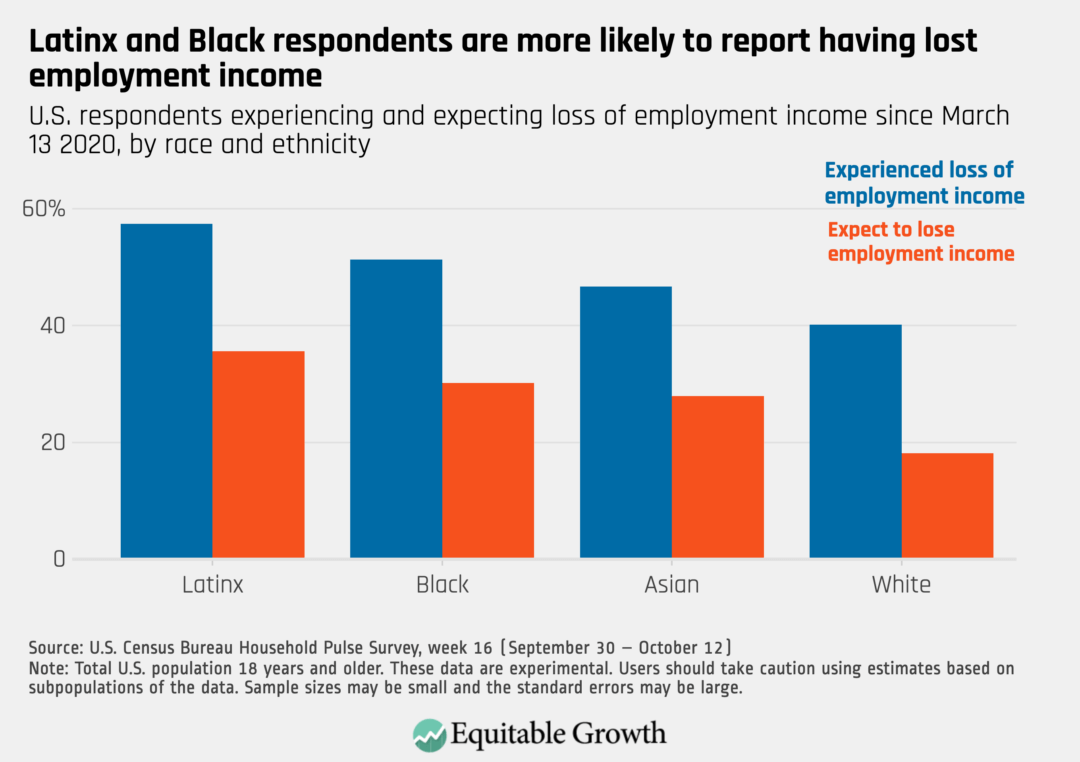Equitable Growth’s Household Pulse graphs: September 30–October 12
On October 21, the U.S. Census Bureau released new data on the effects of the coronavirus pandemic on workers and households. Below are five graphs compiled by Equitable Growth staff highlighting important trends in the data.
Food insecurity varies significantly by race and ethnicity. Fourteen percent of Latinx households and 16 percent of Black households report not having had enough food to eat in the prior week, compared to 7 percent of White households and 5 percent of Asian households.
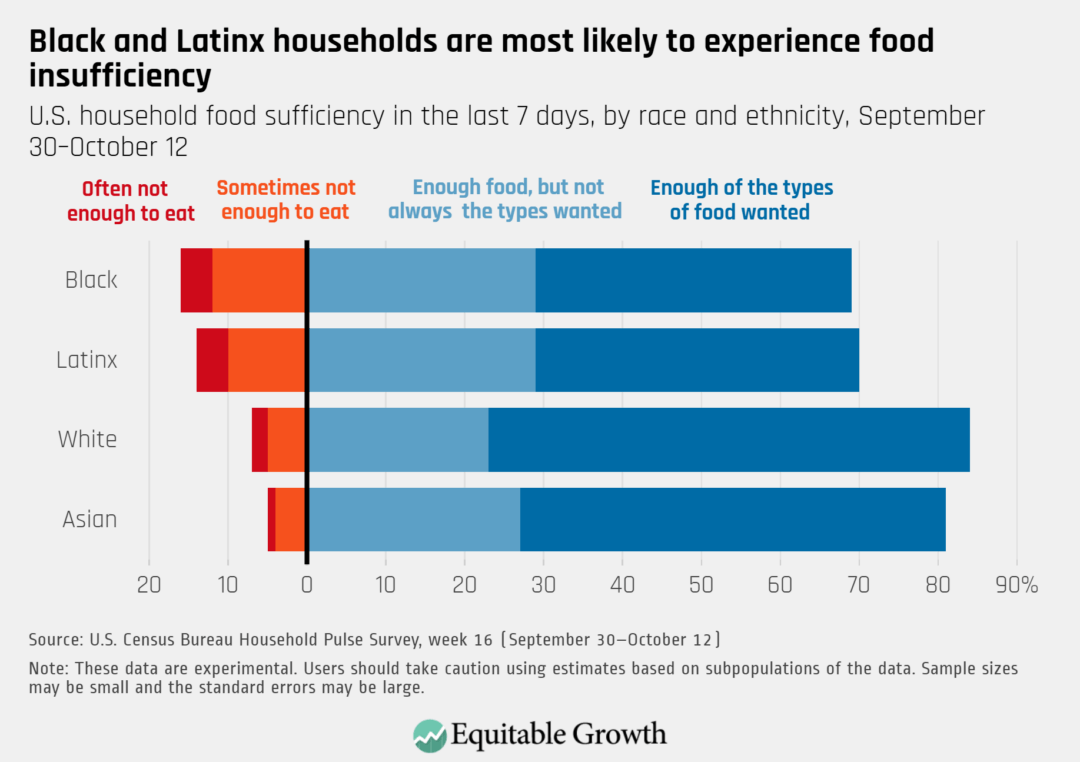
As higher education plans are changed or delayed, those who are delaying education will have fewer options in the U.S. labor market now given high unemployment as well as less opportunity in the future based on credentialism.
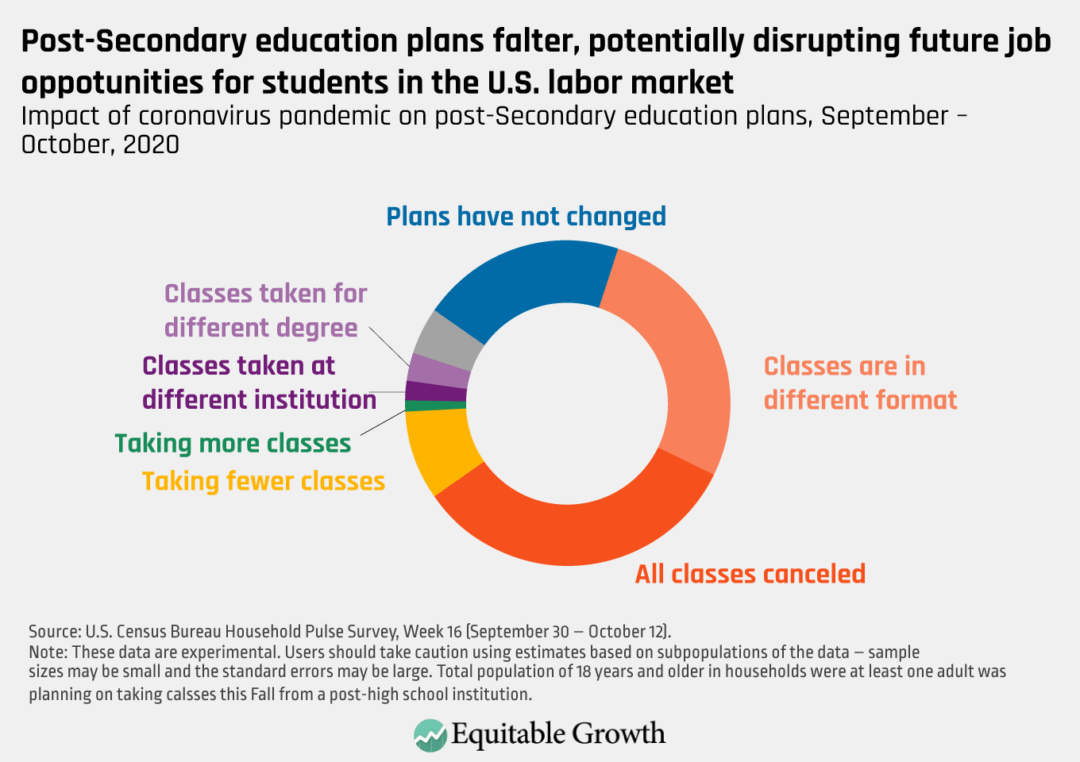
The spread of the coronavirus has impacted the employment of workers with less than a college degree, more of whom report they are not working due to being sick with coronavirus symptoms compared to those with an associate’s degree or greater.
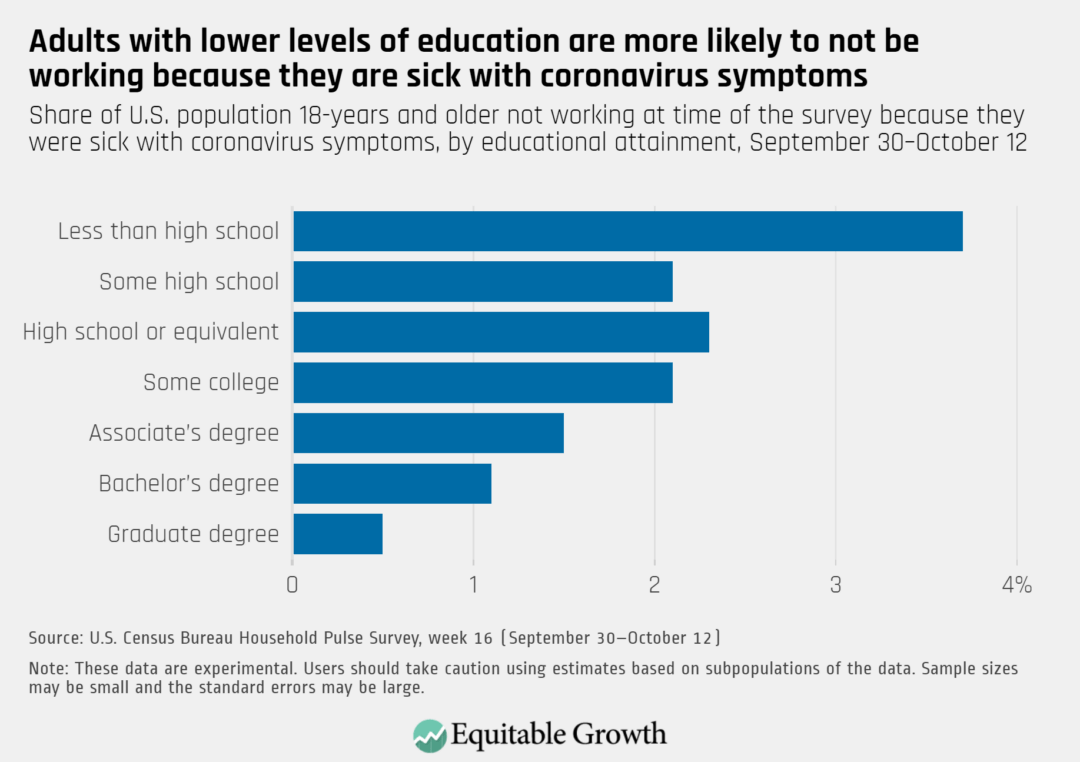
More than half of all households reported having difficulty affording household expenses over the past month, with more than two-thirds of Latinx and Black households reported having difficulty with expenses.
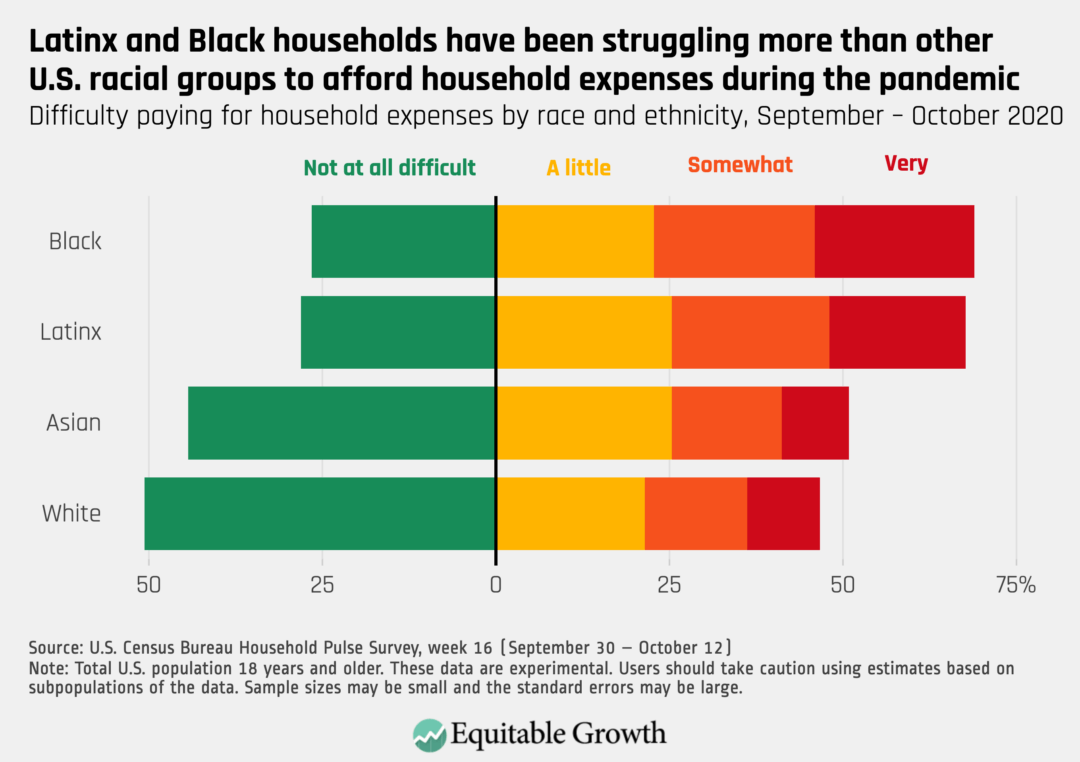
More than half of Latinx and Black respondents report experiencing losses to their employment incomes since the start of the coronavirus recession, with more than one-fifth of all respondents saying they expect to lose income over the next four weeks.
